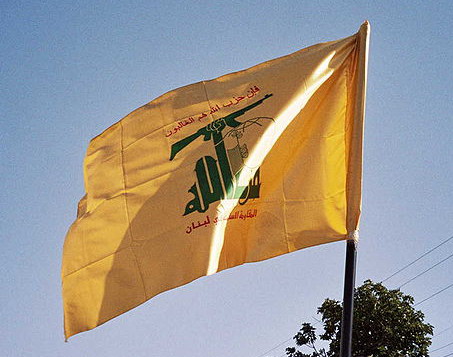 Two years after President Barack Obama confidently predicted a swift demise for Bashar al-Assad, the Syrian president seems relatively secure. Pro-regime forces have clawed back swaths of key territory as the opposition splinters into hundreds of rebel groups.
Two years after President Barack Obama confidently predicted a swift demise for Bashar al-Assad, the Syrian president seems relatively secure. Pro-regime forces have clawed back swaths of key territory as the opposition splinters into hundreds of rebel groups.
However, the means that Assad is using to survive – primarily, fighters from the Iran-backed Lebanese militant group, Hezbollah – is also a potential vulnerability.
Once the most popular political/military movement in the Middle East, Hezbollah is losing its allure throughout the region and facing new challenges even in its homeland because of its intervention in Syria.
Families of the hundreds of Hezbollah fighters killed in the recent battle for Qusair wonder why their loved ones died fighting other Arabs instead of Israel. Rockets, car bombs and improvised explosive devices are striking Lebanese Shiite areas along the border with Syria and in the Hezbollah stronghold in the southern suburbs of Beirut.
Regionally, suspected Hezbollah supporters are being expelled or denied work visas and residence permits in the six countries of the Gulf Cooperation Council. Faysal Itani, a fellow at the Hariri Center of the Atlantic Council, wrote last week that the GCC states, which “pledged in June to target Hezbollah loyalists and their financial and commercial interests in the Gulf” as punishment for the Syria intervention, realize “that targeting the Lebanese diaspora and remittances threatens Lebanon’s economy and can ostensibly be used to pressure the Lebanese government to take action against Hezbollah.”
Meanwhile, the European Union on Monday (July 22) designated Hezbollah’s military wing as a terrorist organization. The step was in response to terrorist attacks last year that killed five Israelis in Bulgaria and threatened others in Cyprus. But the war in Syria also was a factor, says Matthew Levitt, an expert on Hezbollah at the Washington Institute for Near East Policy.
Terrorism in Europe
“For some EU member states, what pushed them to support the ban was terrorism in Europe, but for others, like France, events in Syria played a big role,” Levitt said.
The terrorist designation does not extend to Hezbollah political operatives – raising the question of how Europeans will distinguish between the organization’s political and military wings — but could still lead to some asset freezes and travel bans.
“This designation will have a significant impact on Hezbollah’s ability to operate freely in Europe by enabling European law enforcement agencies to crack down on Hezbollah’s fundraising, logistical activity and terrorist plots on European soil,” State Department spokeswoman Jen Psaki said Monday.
Hezbollah receives millions of dollars a year in aid and weapons from Iran, but its primary source of financing is remittances from the large Lebanese Shiite Diaspora. While the bulk of them live in Africa and Latin America, there are still thousands in Europe and the GCC states. Even a slight drop in remittances could affect Hezbollah’s ability to provide cradle-to-grave services for Lebanon’s Shiites – the basis for the organization’s popular support.
Sunni-Shiite divide
The biggest impact of the Syria intervention, however, may not be economic but political and social: deepening the centuries-old sectarian divide between Sunni and Shiite Muslims. Hezbollah and its backer Iran have tried to project a pan-Islamic narrative that transcends sectarian divisions and unites all Muslims against Israel. Recent opinion polls, however, show a collapse of support for Hezbollah and Iran in Sunni Muslim majority countries as far afield as Pakistan and Central Asia.
“Syria is the nail in the coffin of Iran’s favorable rating in the region,” Zogby said.
Rising sectarianism doomed Iranian hopes to benefit from the overthrow of the Mubarak regime in Egypt when the new president was a Muslim Brother, Mohamed Morsi. With Morsi deposed, there is zero chance that Iranian diplomatic relations with Egypt will be restored anytime soon.
The war in Syria is also jeopardizing the Shiite government in Iraq, fomenting terrorist bombings and creating new tensions within the Shiite community. Grand Ayatollah Ali al-Sistani, who has the largest following among Shiites worldwide, has refused to approve participation in the Syria war by non-Syrian Shiites in support of Assad, whose Alawite faith is an offshoot of Shiism. That puts Sistani at odds with Iran-based Iraqi clerics such as Kadhim al-Haeari as well as with Iran’s Supreme Leader Ayatollah Ali Khamenei and Hezbollah leader Hassan Nasrallah.
While Khamenei and Nasrallah have left no doubt about their commitment to the Assad regime, the price they are paying for that support is rising and could ultimately limit their regional influence rather than enhancing it.
The best way for them to turn a potential liability into an asset is to support talks that produce at least a cease-fire in the Syrian bloodbath. The Obama administration can help by dropping its opposition to an Iranian role and taking advantage of a new Iranian president who says he wants to be part of the solution to the Syrian war and not merely one of its many enablers.
Barbara Slavin is a senior fellow at the Atlantic Council and Washington correspondent for Al-Monitor. She tweets @BarbaraSlavin1. This piece was originally published on VOA News.
Image: Hezbollah flag. (photo: Wikimedia)
